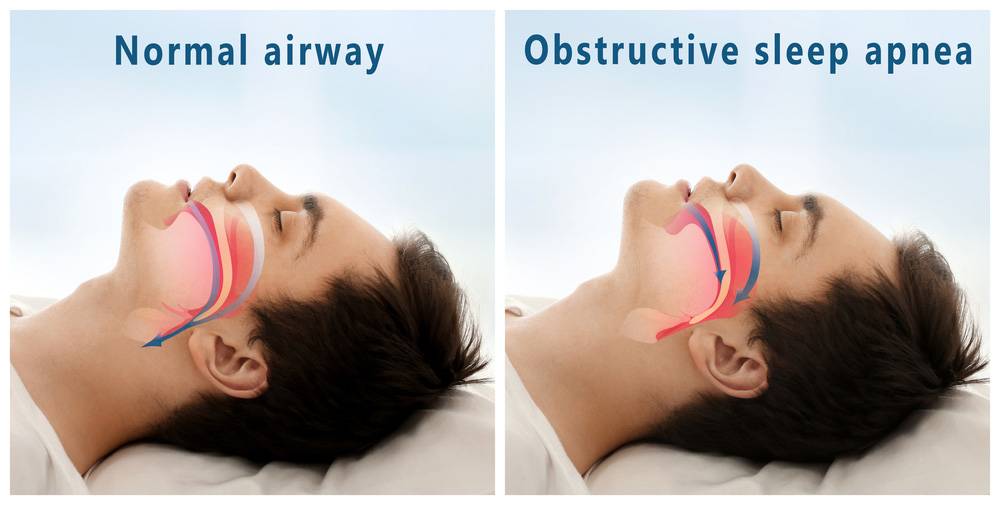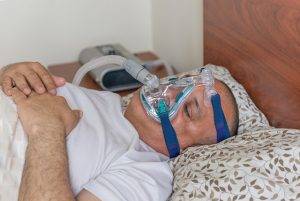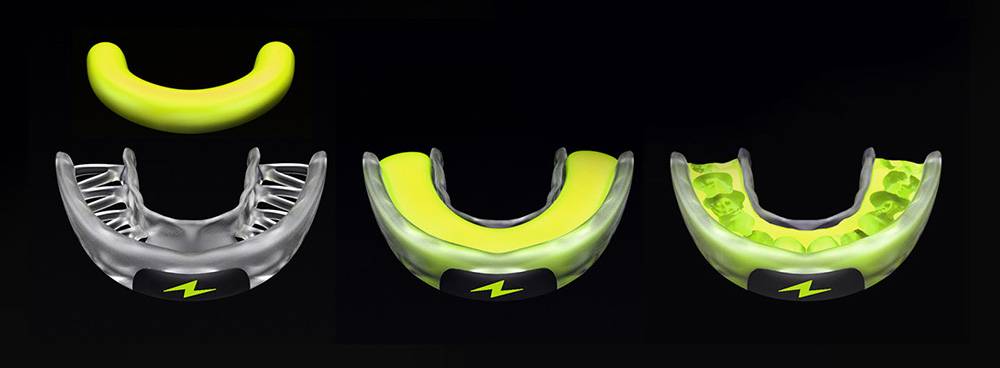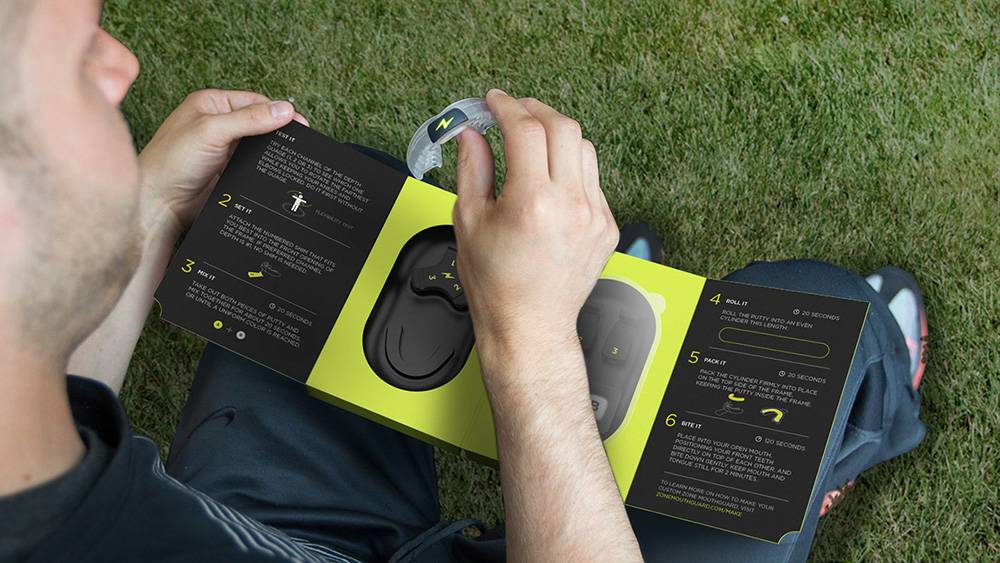
What Causes Snoring?
Snoring is basically a harsh sound that’s caused by air passing by your throat’s relaxed tissues. As these vibrate, they make the annoying sound that we all know as snoring. People who don’t usually snore normally don’t have much to worry about, but those who do it on a regular basis might have a reason to be alarmed. In other words, not all snoring is bad, but it might have a more complex meaning when it happens.
One of the most common medical conditions related to snoring is sleep apnea. This is a sleeping disorder that’s caused by not being able to get the right amount of air intake, thus causing your breathing to stop for a few seconds. Mild sleep apnea isn’t something to fret over, but left untreated and reaching its more severe forms, it can be life-threatening.
The biggest problem with sleep apnea is that you might not even know you have it. It is often something that only people who live with someone else get diagnosed with because it’s usually another person that notices the abnormalities in the breathing patterns. The most common form is obstructive sleep apnea, and aside from snoring, it usually comes with signs of excessive daytime fatigue, elevated blood pressure, nocturnal chest pain, restless sleep, dry mouth, sore throat, trouble in focusing, and also morning headaches.
There are plenty of factors that could cause people to snore. When you fall asleep, your mouth begins to relax, and the soft palate, your throat, and your tongue begin to relax. As this happens, these tissues will relax up to a point where they can block the airway and vibrate.
Snoring is, in fact, caused by a variety of different reasons:
- Consuming large quantities of alcohol before going to bed can relax your throat muscles up to a point where your airways can no longer prevent obstruction.
- The anatomy of a person’s mouth can also be a cause for snoring. For example, people who are overweight can sport additional tissues in the back of their throats.
- If you have chronic nasal congestion, that can also lead to snoring. You might also suffer from a condition known as deviated nasal septum, which is basically the crooked partition that’s located right between your nostrils.
- People who are deprived of their sleep are also more likely to have a relaxed throat.
- The sleeping position also contributes to snoring, as people who sleep on their backs will have gravity working in favor of narrowing the airway.
The Role of Mouthguards
Mouthguards are oral devices that are used to protect teeth and gums of people who practice contact sports, but they are also useful for problems like sleep apnea or tooth bleaching. It can also help treat bruxism and TMD, being a very versatile product.
Mouthguards are of several different types:
- Some of them are ready-made, which means that you can buy them, but can’t make any adjustments to them. There are a few models that you might be able to trim using a knife and scissors but those are about your only options.
- Custom-made mouthguards are done by specialists after making a custom mold of your mouth and using that impression to make the product. There are even companies that can use 3D imaging to create digital impressions, as they have the required technology to do so.
- Mouth-adapted mouthguards are those “boil and bite” type of product that you can easily purchase online or in drugstores. They are mostly made from a thermoplastic material that’s pre-shaped and available in a variety of different sizes. You’d basically be submerging the product in boiling water to make it soft enough in order to bite on it and leave an impression.
- Some mouthguards are called occlusal splints and are mostly used in dentistry. They can be removed and are molded to fit your lower or upper teeth arches.
How to Choose a Mouthguard
Since mouthguards are of several different types, it’s important for you to know how to pick the best one for your particular needs. Here are some of the most common uses of mouthguards, as well as tips on how to pick one that matches your case:
- Sports
is one of the main reasons why mouthguards became so popular in the first place. Since there are great chances of people who practice sports of falling and getting injured, a mouthguard can help protect teeth, lips, tongue, and gums. Mouthguards can basically be used in any type of sports, including soccer, football, wrestling, cycling, volleyball, ice hockey, basketball, or softball. If you practice sports that might lead to injuries, you can either use a ready-made mouthguard or a mouth-adapted one. The first option is the least expensive of the two, but it doesn’t allow for much customization. Alternatively, you can choose the second one and it will provide you with a better fit. The latter option is also safer for people who practice high-impact sports.
Bruxism is another condition that requires a mouthguard. It’s basically teeth grinding that is considered to be a sleep-related movement disorder which can lead to multiple complications, just as jaw or tooth pain, and sore gums. It can also cause permanent damage to your teeth. If you suffer from bruxism and use a mouthguard when sleeping, it would help separate the top and bottom teeth so they won’t damage each other. People who have bruxism are much better off using a custom-made mouthguard. Choosing ready-made ones would cause too much discomfort and make it difficult to sleep. Mouth-adapted guards could also be a viable choice, but since people with bruxism will still have the teeth grinding habit, that would quickly lead to wear and tear of the product.
- Sleep apnea
is one of the most common medical conditions that require using a mouthguard. While they are mostly suitable for mild and moderate sleep apnea, mouthguards are preferred to invasive procedures that require surgical interventions to help fix the problem. People that have sleep apnea stop breathing for a few seconds and that, needless to say, can lead to a variety of life-threatening medical problems. Since you fail to breathe and your brain doesn’t get enough oxygen, it could cause stroke, heart disease, high blood pressure, or insulin resistance.
People who have severe forms of sleep apnea will likely need a CPAP machine or a medical intervention, but for the rest of them, a mouthguard should do the trick. When you have sleep apnea and wear a mouthguard. What this product basically does is to push your tongue and your lower jaw forward to make sure that your airway is open and you can breathe normally. Depending on the model chosen, the product can also come with a strap that goes around the chin/head, keeping your lower jaw in place. Mouth-adapted mouthguards will usually suffice for people who have sleep apnea, but custom-made mouthguards are the ideal solution.
Snoring is also a problem that can be treated with the right type of mouthguard. Since snoring is actually a soft tissue vibration, you basically need a mouthpiece that’s similar to the one you’d use for sleep apnea. The tricky thing about choosing mouthguards for snoring is the fact that the ones that you can buy over-the-counter haven’t really been tested to prove or dismiss their efficiency. The best solution for people who snore is to talk to their dentists and explore mouthguard options together. They might be able to help you get your hands on a custom-made piece (which, for the record, is basically the ideal solution in just about every case).
The Zone Mouthguard
When it comes to choosing a mouthguard, there are more than just a couple of options out there, and that sometimes makes shopping for one really difficult. The Zone mouthguard is a very interesting piece that’s designed to be a custom-fit piece that was designed with the help and advice of neuromuscular dentist Dr. David Frey.
The Zone mouthguard is unlike any other product you’ve ever seen. It gives you the possibility to mold the product to best fit you without using the traditional method of dipping it in boiling water. The product is based on a mixture of materials that you have to put together and then firmly bite down so that the product will be a perfect fit.
The mouthguards are delivered in a neat package with all the text and imagine instructions you need to set up this item on the go.
- The first step is testing to see which bite plate you’re better off using with your particular jaw construction. The instructions advise doing a trunk rotation, then looking over your leading arm, and choosing a point of reference in the room so that you can establish how far you’ve rotated. Place the shim inside your mouth, making sure that your teeth are aligned over each other and bite. Do the rotation test, always checking how far you can rotate. Do that with both shims.
- See which of the two shims allowed you to rotate the farthest, and place it inside your mouthguard.
- Grab the two pieces of putty that are inside the package and fold and stretch them together as per the image instruction. In the end, you should have one piece of uniform color. The entire process takes about 20 seconds.
- Roll the putty until it makes a long thin tube. Proceed to pull out from the middle to create a thinner section right at the center of it.
- Once the step above is completed, this new piece of putty should be placed on the top side of the frame. You are given precise image instruction that will should you how the putty goes below the top of the frame. You will have to press it to make sure it’s about 2 mm lower compared to the bite plate of the frame.
- Now you can bite in order to create a custom mold. Hold your bite for two minutes.
Conclusion
Regardless of the type of mouthguard that you choose, hygiene is very important. You will need to clean it thoroughly every day, considering that it’s going to be worn for a considerable number of hours every night. You can clean your mouthguard just as you would clean your teeth. Brush it, floss it, rinse it, and you should be fine. Make sure you avoid hot water in order to maintain its shape.
As far as the Zone mouthguard is concerned, we can honestly say it revolutionized the way we see mouth-adapted products. It’s basically a combination between a custom-made mouthguard and a boil-and-bite one, only it eliminates the need to actually submerge the product in boiling water to shape it to your mouth. With plenty of instructions that will guide you visually to customizing the mouthpiece, the Zone mouthguard has been well received by its fan-base and is definitely a viable alternative to custom-made products (which tend to be a little too expensive at times).



 Bruxism is another condition that requires a mouthguard. It’s basically teeth grinding that is considered to be a sleep-related movement disorder which can lead to multiple complications, just as jaw or tooth pain, and sore gums. It can also cause permanent damage to your teeth. If you suffer from bruxism and use a mouthguard when sleeping, it would help separate the top and bottom teeth so they won’t damage each other. People who have bruxism are much better off using a custom-made mouthguard. Choosing ready-made ones would cause too much discomfort and make it difficult to sleep. Mouth-adapted guards could also be a viable choice, but since people with bruxism will still have the teeth grinding habit, that would quickly lead to wear and tear of the product.
Bruxism is another condition that requires a mouthguard. It’s basically teeth grinding that is considered to be a sleep-related movement disorder which can lead to multiple complications, just as jaw or tooth pain, and sore gums. It can also cause permanent damage to your teeth. If you suffer from bruxism and use a mouthguard when sleeping, it would help separate the top and bottom teeth so they won’t damage each other. People who have bruxism are much better off using a custom-made mouthguard. Choosing ready-made ones would cause too much discomfort and make it difficult to sleep. Mouth-adapted guards could also be a viable choice, but since people with bruxism will still have the teeth grinding habit, that would quickly lead to wear and tear of the product.
 People who have severe forms of sleep apnea will likely need a
People who have severe forms of sleep apnea will likely need a  Snoring is also a problem that can be treated with the right type of mouthguard. Since
Snoring is also a problem that can be treated with the right type of mouthguard. Since 
